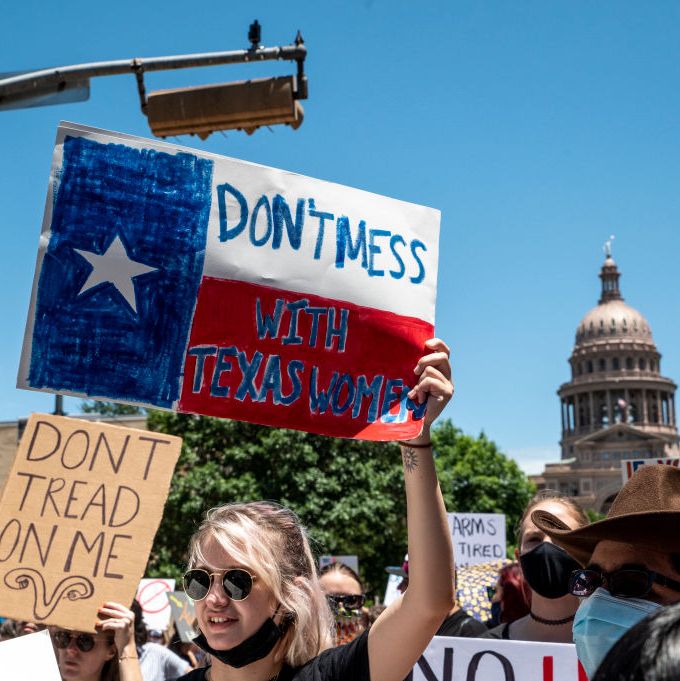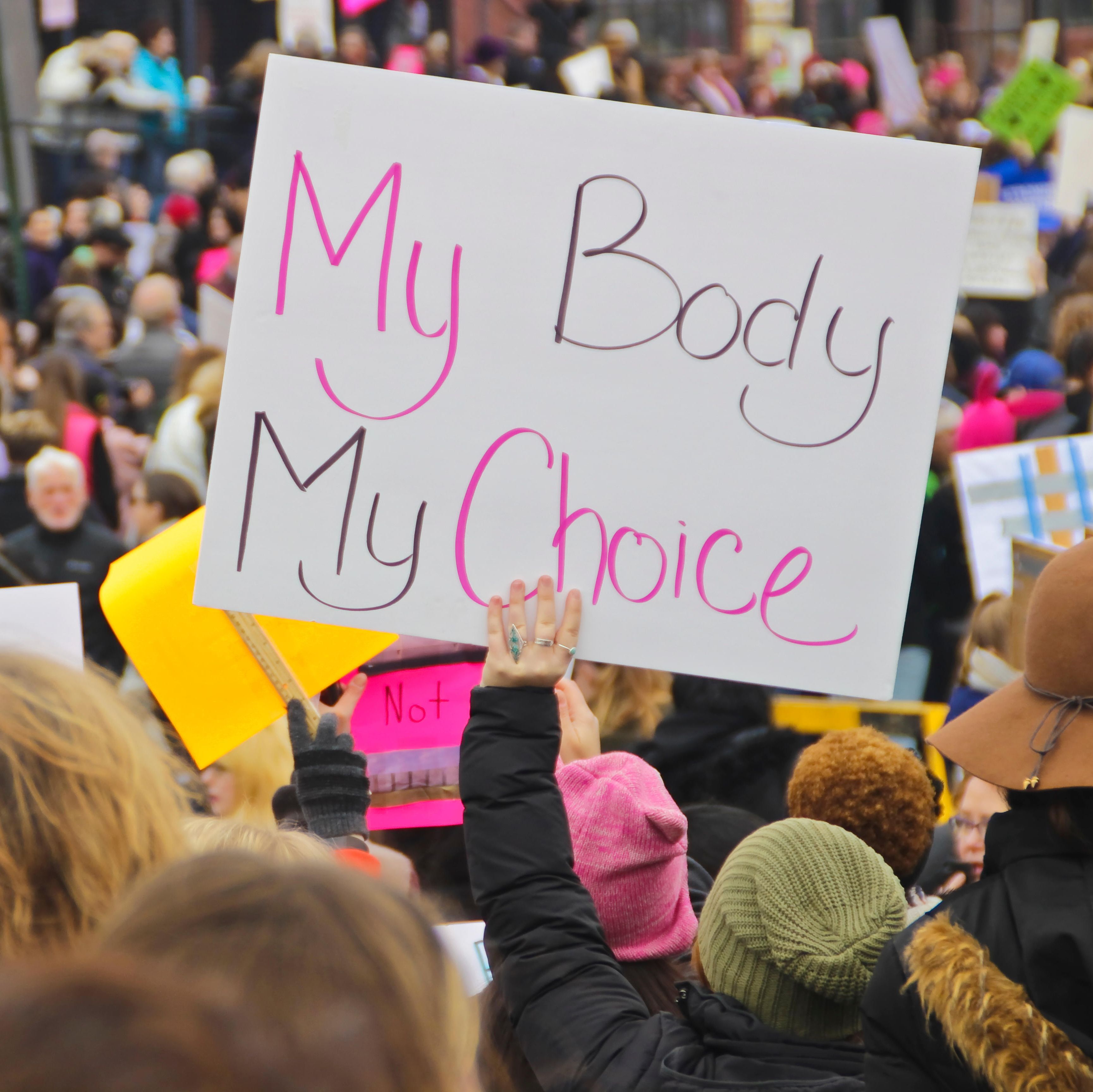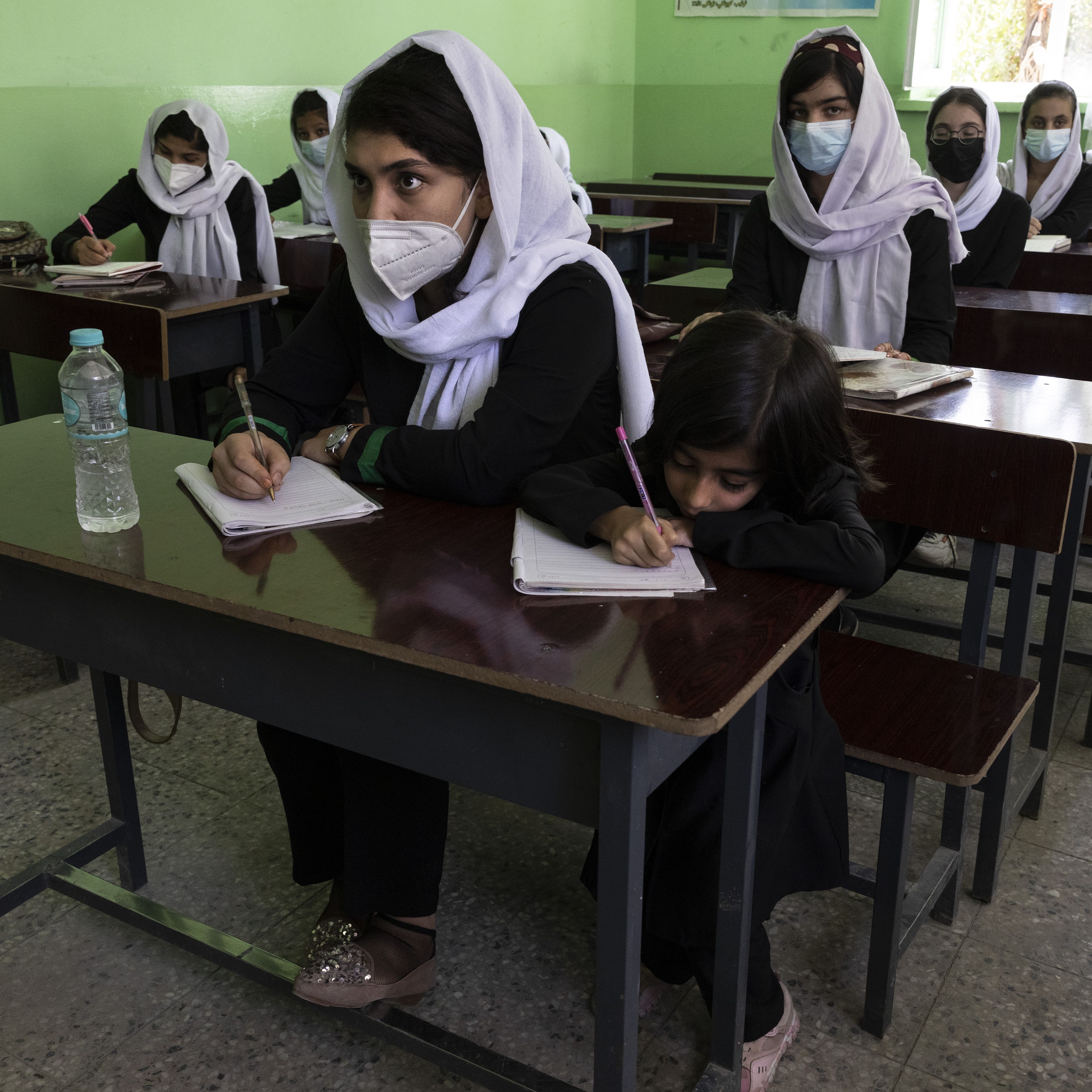Amnesty International Wants Prostitution to Be Legal Around the World, Says It's a Human Right
And lots of people, including Meryl Streep and Lena Dunham, are not happy about it.


Amnesty International, one of the biggest human-rights groups in the world, is calling for prostitution to be legalized worldwide. But it's facing major backlash from human trafficking groups, who say that could do more harm than good.
In August, the group will ask its delegates to vote on a proposal that calls for the decriminalization of sex work. The proposal makes it clear that human trafficking for sexual exploitation should be criminalized around the world, and certainly if the prostitution involves children. "Criminalization, in its varying forms, exposes sex workers to increased risk of human rights abuses," the proposal reads.
But part of the proposal has led activists to raise their eyebrows: the issue of consent. "By definition, sex work means that sex workers who are engaging in commercial sex have consented to do so," the policy reads. But an open letter signed by more than 400 human rights advocates, plus celebrities like Lena Dunham, Meryl Streep, and Kate Winslet, argues that's not the case.
In the letter, the group says the policy would "legalize pimping, brothel owning and sex buying," but wouldn't necessarily protect prostitutes. Instead, they say it would create a "gender apartheid," which would privilege sex workers who have the choice to enter or leave the industry, and hurt women who don't have that choice. A Change.org petition urging delegates to vote "no" on the policy has received more than 4,000 signatures.
But some sex workers say activists like Dunham and Winslet shouldn't speak for people who aren't in their privileged situation, and that criminalizing prostitution makes it tougher for people who are trying to leave it, and can actually be harmful to women. "I've definitely experienced acts where I consider myself a victim of sexual assault and feel like there's no option, knowing the person who hurt me made that decision knowing I couldn't go to the police," a sex worker who went by the name Jane told The Daily Beast.
A representative for Amnesty International told The Daily Beast that there's no official policy yet, and it's unclear which way the vote will go. Either way, though, a large group of activists won't be happy about it. So what's the alternative? Many activists point to some Scandinavian countries, which only criminalize buying sex, not selling it, and offer programs to support women who are being forced to sell sex. According to CNN, street prostitution has been nearly halved, and trafficking has declined, since the laws were put into effect.
Stay In The Know
Get exclusive access to fashion and beauty trends, hot-off-the-press celebrity news, and more.

Megan Friedman is the former managing editor of the Newsroom at Hearst. She's worked at NBC and Time, and is a graduate of Northwestern's Medill School of Journalism.
-
 This New $235 Face Cream Turned My Dark Spots Into a Disappearing Act
This New $235 Face Cream Turned My Dark Spots Into a Disappearing ActSee it to believe it.
By Samantha Holender
-
 Netflix's 'North of North' Transports Viewers to the Arctic Circle—Meet the Cast of Inuit Indigenous Actors
Netflix's 'North of North' Transports Viewers to the Arctic Circle—Meet the Cast of Inuit Indigenous ActorsThe new comedy follows a modern Inuk woman determined to transform her life.
By Quinci LeGardye
-
 Princess Beatrice's Husband Pays a Rare Tribute to These Royal Family Members on Instagram
Princess Beatrice's Husband Pays a Rare Tribute to These Royal Family Members on InstagramEdoardo Mapelli Mozzi shared some behind-the-scenes snaps from the F1 Grand Prix in Bahrain.
By Kristin Contino
-
 36 Ways Women Still Aren't Equal to Men
36 Ways Women Still Aren't Equal to MenFeatures It's just one of the many ways women still aren't equal to men.
By Brooke Knappenberger
-
 Today, on Human Rights Day, the U.S. Must Abolish Child Marriage
Today, on Human Rights Day, the U.S. Must Abolish Child MarriageIn all but six states, American adults can marry people aged 17 and younger.
By Saryn Chorney
-
 EMILY's List President Laphonza Butler Has Big Plans for the Organization
EMILY's List President Laphonza Butler Has Big Plans for the OrganizationUnder Butler's leadership, the largest resource for women in politics aims to expand Black political power and become more accessible for candidates across the nation.
By Rachel Epstein
-
 Want to Fight for Abortion Rights in Texas? Raise Your Voice to State Legislators
Want to Fight for Abortion Rights in Texas? Raise Your Voice to State LegislatorsEmily Cain, executive director of EMILY's List and and former Minority Leader in Maine, says that to stop the assault on reproductive rights, we need to start demanding more from our state legislatures.
By Emily Cain
-
 Your Abortion Questions, Answered
Your Abortion Questions, AnsweredHere, MC debunks common abortion myths you may be increasingly hearing since Texas' near-total abortion ban went into effect.
By Rachel Epstein
-
 The Future of Afghan Women and Girls Depends on What We Do Next
The Future of Afghan Women and Girls Depends on What We Do NextBetween the U.S. occupation and the Taliban, supporting resettlement for Afghan women and vulnerable individuals is long overdue.
By Rona Akbari
-
 How to Help Afghanistan Refugees and Those Who Need Aid
How to Help Afghanistan Refugees and Those Who Need AidHow To With the situation rapidly evolving, organizations are desperate for help.
By Katherine J. Igoe
-
 It’s Time to Give Domestic Workers the Protections They Deserve
It’s Time to Give Domestic Workers the Protections They DeserveThe National Domestic Workers Bill of Rights, reintroduced today, would establish a new set of standards for the people who work in our homes and take a vital step towards racial and gender equity.
By Ai-jen Poo